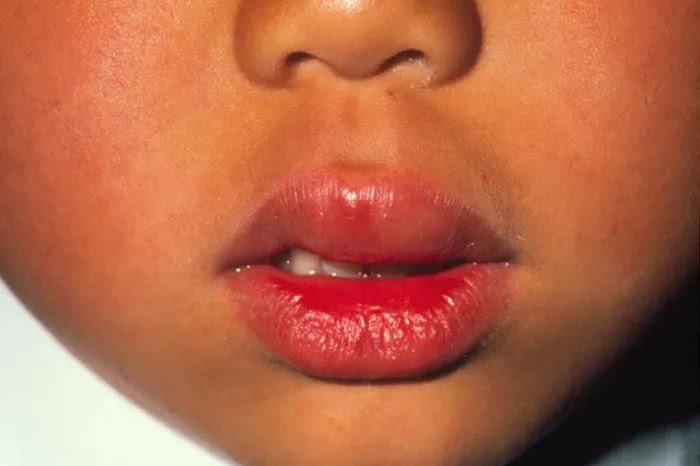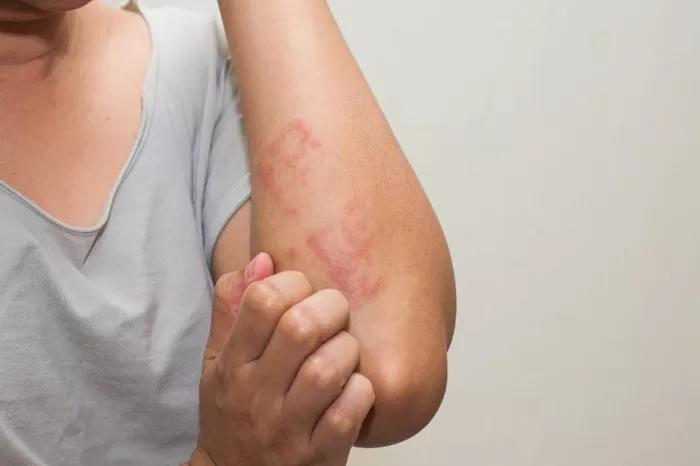Lip allergies, also known as contact cheilitis, are a common skin condition that causes irritation, swelling, and redness of the lips. While many people experience occasional lip irritation from certain foods or products, a true lip allergy is caused by an allergic reaction to a specific allergen. Understanding the causes of lip allergies is crucial for managing and preventing this condition.
Causes of Lip Allergies
Contact allergens are substances that, when in contact with the skin, trigger an allergic reaction. In the case of lip allergies, these allergens can be found in a variety of products and substances that come into contact with the lips:
1. Cosmetic Products:
Lipstick, lip gloss, and lip balm often contain fragrances, dyes, and other ingredients that can cause allergic reactions.
Metals used in jewelry, such as nickel, can also trigger lip allergies when they come into contact with the lips.
2. Food and Beverages:
Certain foods, such as citrus fruits, tomatoes, and spices, can cause lip allergies due to their acidic or irritant properties.
Some beverages, such as coffee, tea, and alcohol, can also trigger allergic reactions in some people.
3. Dental Products:
Toothpaste, mouthwash, and dental floss can contain ingredients that can irritate or cause allergic reactions on the lips.
Dental materials, such as acrylic and latex, used in dentures or braces, can also trigger allergies.
4. Medications:
Certain medications, such as antibiotics and anti-inflammatory drugs, can cause lip allergies as a side effect.
Topical medications applied to the lips, such as hydrocortisone cream, can also trigger allergic reactions.
5. Occupational Exposure:
People who work in certain industries, such as cosmetology, dentistry, or food processing, may be exposed to allergens that can cause lip allergies.
Chemicals, solvents, and other materials used in these industries can irritate or trigger allergic reactions on the lips.
Symptoms of Lip Allergies
The symptoms of lip allergies can vary depending on the severity of the reaction and the allergen involved. Common symptoms include:
1. Redness, swelling, and itching of the lips
2. Dry, flaky skin
3. Blistering or peeling
4. Painful or burning sensation
5. Cracking or bleeding lips
6. Difficulty eating, speaking, or kissing
Solutions for Lip Allergies
Managing lip allergies involves identifying the allergen and avoiding contact with it. Additional measures can help reduce symptoms and prevent future reactions:
1. Identify the Allergen:
Keep a record of products and substances that you use or come into contact with before an allergic reaction occurs.
Consider allergy testing to determine the specific allergen responsible for your lip allergy.
2. Avoid Allergens:
Once you have identified the allergen, avoid any contact with it.
Read ingredient labels carefully and look for potential allergens in cosmetic products, foods, and medications.
Use hypoallergenic products designed for sensitive skin.
3. Protect Your Lips:
Wear a lip balm or ointment with sunscreen to protect your lips from environmental irritants.
Use a humidifier at home and in your workplace to keep the air moist and prevent dry lips.
4. Treat Symptoms:
Over-the-counter antihistamines or hydrocortisone cream can help reduce inflammation and itching.
For severe allergic reactions, seek medical attention immediately.
5. Medical Management:
If avoidance measures are not sufficient, your doctor may prescribe medications, such as topical steroids or oral antihistamines, to control symptoms.
In rare cases, immunotherapy may be recommended to reduce your body’s sensitivity to the allergen.
Conclusion
Lip allergies are a common skin condition caused by an allergic reaction to specific allergens. Identifying the allergen and avoiding contact with it is crucial for managing and preventing this condition. By understanding the causes, symptoms, and solutions for lip allergies, you can effectively alleviate discomfort and protect the health of your lips.
[inline_related_posts title=”You Might Be Interested In” title_align=”left” style=”list” number=”6″ align=”none” ids=”6008,6005,6000″ by=”categories” orderby=”rand” order=”DESC” hide_thumb=”no” thumb_right=”no” views=”no” date=”yes” grid_columns=”2″ post_type=”” tax=””]































